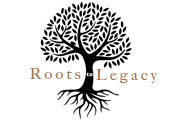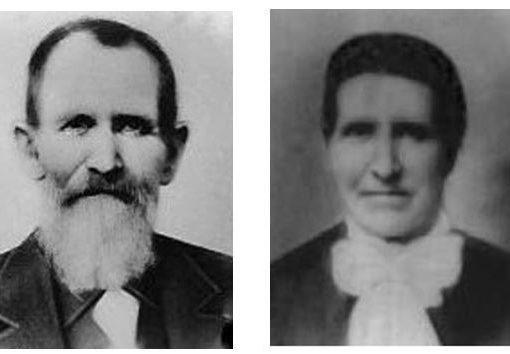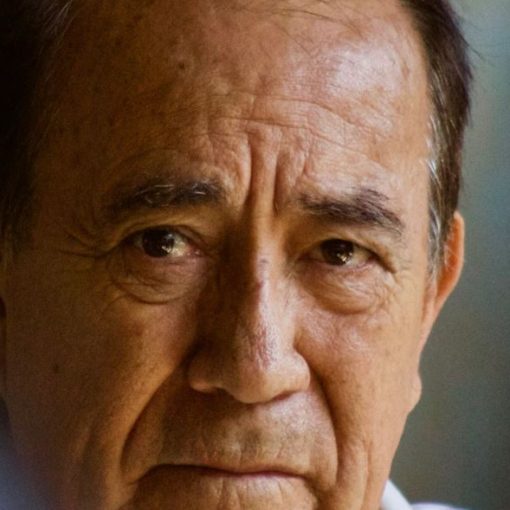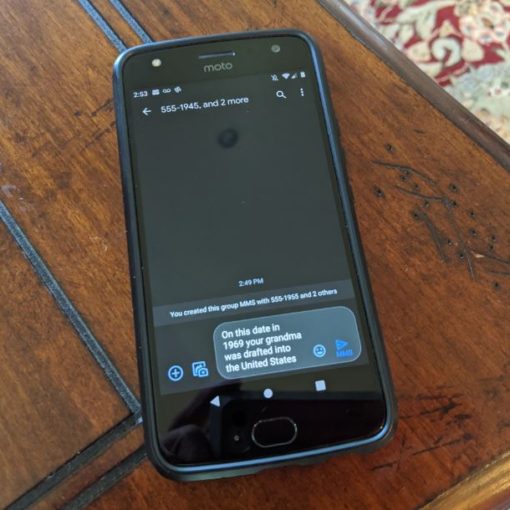Three of my four grandparents were born in Arizona Territory, before Arizona was a state. The fourth, my dad’s dad, was born a few miles from the Arizona border. Interestingly, neither of my parents grew up in Arizona. They just happened to move there a few years before I was born. I’ve always liked this odd ancestral connection to my home state. Knowing where I came from and the stories of my ancestors have always been fascinating and important to me.
Luckily, my family history is rich with stories and people, which have been preserved and passed down over the years. I know the stories of all my great grandparents and many of my great great grandparents. Though all of them were gone decades before I was born, I’ve always felt I knew something about them, I’ve also always felt like they are a part of me. I’ve felt some measure of responsibility to live up to their legacy and build upon what they started. In order to do this, I’ve had to know about them. I’ve had to learn about their legacies, their trials, triumphs, short comings, and failures. As I’ve done this I’ve learned that they were human, just like me. They were not perfect, and that’s okay. They did have good hearts and tried to do good in the world. I can see the good things they did and I can continue those beliefs and actions. I can also see their flaws and I can try to do better and improve the legacy they gave me, so my posterity can continue that process until an impressive legacy persists.
These are some of the reasons knowing my roots is important to me. There are many other reasons people want to know their ancestry. Some reasons appeal to different people for different reasons. Here are a few of those reasons. Perhaps one might resonate with you and inspire you to learn more about your ancestry.
Curiosity
For many, learning about their roots is simply a curiosity. Some people just don’t know much about their heritage and would like to find something out. Some families don’t talk about their ancestry or extended families. This is very different than my upbringing, but it is fairly common. I’ve met plenty of people that truly had no clue what their ethnicity was or where their ancestors came from and how they got to the US. Learning about your ancestry, especially if you know absolutely nothing about it, can be very interesting and satisfying. If you’ve never tried finding out about your ancestors, give it a try, you may be surprised by how interesting it is.
Spirituality
For some there is a spiritual aspect to learning about their heritage. We all came from those who lived before us. The idea of literally being a part of others is a pretty amazing thought. There are spiritual overtones to such a concept. People who are inclined to spirituality often feel a connection to their ancestors. Many cultures and faiths also have a focus on family members who have passed. For example, in Mexican culture Dia de los Muertos is centered on remembering and connecting with one’s ancestors.
In such situations, the more you truly know about your ancestors, the deeper those spiritual connections can be. Knowing your ancestors and allowing time and spaces to commune with them can be very spiritually powerful.
Health
Doctors ask you about your family medical history for a reason. Knowing what ailments and diseases your ancestors had can give you some insight into what you might want to avoid or prepare for. Genes are powerful and certain conditions can be passed down from one generation to the next. Knowing about you family medical history gives you power to make choices and try to avoid some of the health issues your ancestors experienced. Knowing what might affect us gives us a greater chance to overcome it thanks to the modern medical care and scientific knowledge available to us that our ancestors didn’t have the privilege of access to.
Emotional Healing
Families can be complicated. Everyone has aspects of their upbringing they wish would have been different, but for those who had particularly complicated upbringings and complicated family dynamics it can set a course for emotion struggle and complication that lasts a lifetime or even for generations. Often such emotional complications based on family situations didn’t start in that generation. For certain behaviors and situations, the wheels where set in motion generations back. This is something you might not realize. You might think your situation is only yours, but perhaps it is a shared experience in some ways, passed down from generation to generation. Researching your family history might reveal glimpses of this. Knowing this of course will not heal the wounds that have been inflicted on its own, but it may create a space for reflection and lead to steps for healing. Knowing your family history, the dynamics that were in place in the past, and analyzing how those dynamics have affected you, can put you in a position that perhaps earlier generations were not in; a situation that empowers you to take control and change the family trajectory. Knowledge is power when it is used to make better choices than were made in the past.
Knowing your family history, the dynamics that were in place in the past, and analyzing how those dynamics have affected you, can put you in a position that perhaps earlier generations were not in; a situation that empowers you to take control and change the family trajectory.
Sharing With Posterity
Having a child is amazing. Once you do you are given the opportunity to love that human and help her or him work to reach their full potential in life. To do this, you must develop a strong and healthy relationship with each other. This, in part, is done by spending time with each other. My daughter is only one and a half years old, but I see the way the world is and worry about how I can make sure, as she grows, we create time and places for us to spend time with each other. The world is so busy and there are so many things to occupy our time. I don’t want to fall victim to all the time suck activities surrounding us. One way I plan to combat this is through teaching her about her heritage.
Thinking back to when I was growing up I remember many moments where I had conversations about my ancestors with my parents. These weren’t grand planned out lessons on their part; they were typically off the cuff moments where something came up that reminded them of some ancestor or old family story. They would share those stories with me and I really connected with them. Not only did these moments help me learn about my ancestry, they also taught me life lessons; principles to live by and mistakes to learn from. Perhaps most importantly these moments gave me time to connect with my parents and develop the strong relationship I have with them. I’m very thankful for those moments and look forward to creating similar ones with my daughter. I invite you to learn about your ancestry so you can create similar moments too.
Legacy Building
Your legacy does not just start with you. You are the product of those who came before you. Knowing who those people are can help you better understand yourself and put you in a better situation to build on the legacy they left. If you don’t like the legacy that you inherited, or if you just want to improve upon it, knowing something about the foundation of that legacy will help you gain wisdom and make the changes needed to build the legacy you want. Not knowing where you came from might put you in the same cycles your family naturally defaults to. There is also great positive wisdom you can glean from your family history. Find those individuals who had the qualities you want and be inspired to continue those good things your ancestors have left you.
If any of these reasons to learn about your family history has resonated with you, I encourage you to do a little research, ask relatives who are still around, and find out about the people and choices that have culminated in the creation of you. Then use that information to improve your life and legacy.





